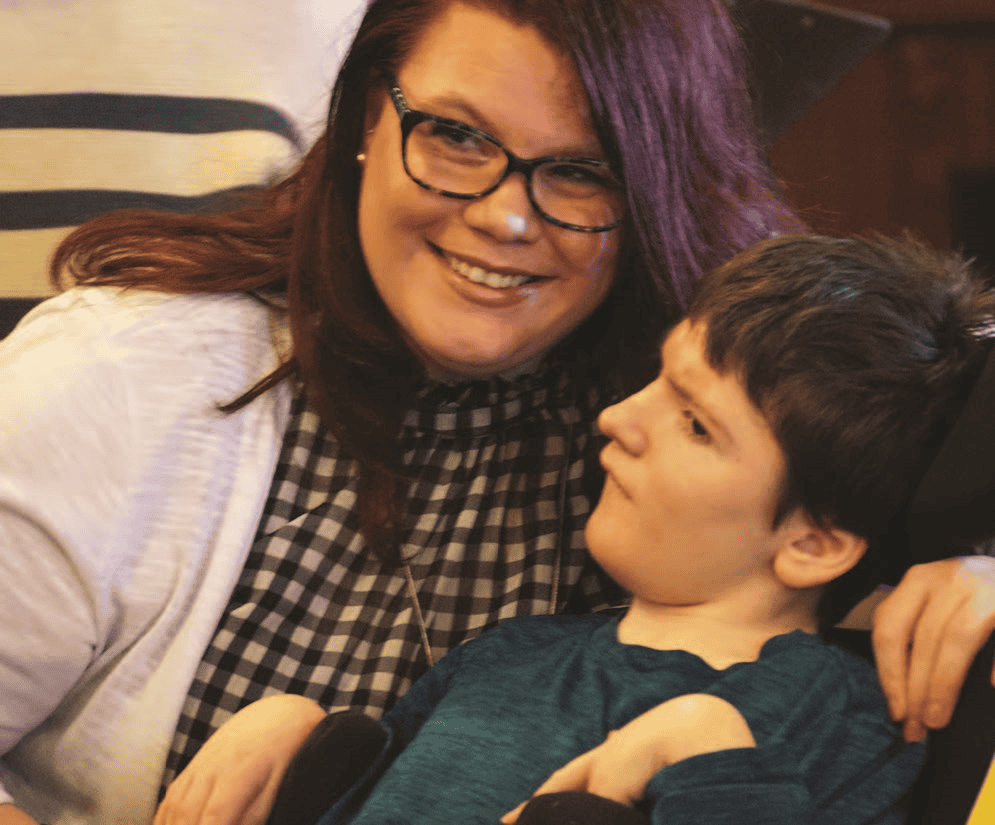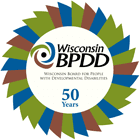Family Engagement:
Agencies
Why Family Engagement Matters to Agencies
According to The Arc’s national Family & Individual Needs for Disability Services (FINDS) 2017 survey, 80% of people with IDD live with their families, with the majority of family members providing 40 to more than 80 hours of care per
week. Family members, as guardians or informal supporters, pay a
crucial role in the health, safety and well-being for most adults with IDD.
Unfortunately, our service system does little to fully engage, educate, and support family members. This results in a number of concerns for adults with IDD (4), including overprotection, rights restrictions, segregation, limited meaningful community connections, and major life disruptions when primary family caregivers pass away. The research is clear that segregation, lack of community connections and limited opportunities to develop self-advocacy skills puts people with IDD at higher risk of abuse and neglect. Our disability service systems, including direct service provider agencies, need to do more intentional work to engage families in understanding the dignity of risk, individual rights, and the benefits of community-based services.
The Living Well grant worked with agencies to look at best and promising practices that authentically engage families and guardians. By implementing these insights, agencies can establish a foundation for robust family engagement
initiatives that empower families and contribute to the overall well-being and success of adults with IDD.
The Living Well Grant supported pilot agencies to implement family engagement strategies. The most effective strategies involved:
• Hosting listening and educational events on Supported Decision-Making,
individual rights, and other topics of interest to families, such as
employment or community supported living.
• Engaging families in Futures Planning workshops.
• Family-led organizations where families mobilize their strengths and
resources to design services for their loved ones.
How Agencies Can Increase Family Engagement
Recognize that family caregivers need information and support. Agencies should invest time and resources to provide plain language information to families in a variety of methods, such as newsletters, social media, fact sheets, and virtual and in-person sessions. Identify and partner with family leaders to better understand the concerns and information they need. Enlist parent leaders to co-facilitate listening sessions, focus groups and information events. Provide support and resources to them to create a family peer-to-peer support network.
Provide family engagement training to staff. Staff need to understand the perspectives of families and how to effectively engage families in planning conversations with participants. Training is available through virtual learning
platforms like Open Future Learning and College of Direct Support. Organizations such as Family Voices and PACER Center provide family engagement resources and may also be able to recommend subject matter experts to provide staff training.
Use family friendly, person-centered planning tools. Because qualifying for services is based on deficits and needs, our service system has conditioned families to focus on the negative impacts of disability. Person-centered planning
tools and strengths-based assessments can help family members see more of what is positive and possible in their loved one’s lives. Service providers can partner with families to use tools from Charting the Life Course, The Center for
Independent Futures, and TransCen to create meaningful life goals and individualized, active support plans.
Host Futures Planning workshops. Caregivers share a long list of concerns about what will happen to their loved one with disabilities when they are no longer able to support them. Planning ahead can help guide a person with IDD to lead a good life as independently as possible. A plan is important throughout all stages of life and especially in the future after the parent or caregiver is no longer able to provide support (5).
Spread the word about Supported Decision-Making. Guardianship is sometimes seen as the only way to keep people with IDD safe. However, alternatives to guardianship have emerged, providing a continuum of options that create safety nets while preserving individual rights. Several states have passed Supported Decision Making laws. Service providers should be actively informing families about Supported Decision Making and alternatives to guardianship through educational sessions, social media, and more.
Host rights education sessions. Families benefit from opportunities to learn about rights and the dignity of risk. The best way for families to learn about this is through the experiences of other families. Agencies should identify family leaders to co-present information about rights. Providing a meal is a great way to draw people in!
Support families to have high expectations for employment and community life. There are many ways agencies can support families to “think ability” and have high expectations for their loved ones with disabilities. The most powerful way is to share stories of people working and living in the community through newsletters and social media. Community Conversation events are another
effective strategy for improving attitudes and expectations for people with disabilities.
Tools for Agencies
Open Future Learning (OFL) is an online training platform that offers content exclusively for IDD service providers. OFL offers several staff training modules about families, including Improving Communication with Families, Stress and Its
Impact on Families, Understanding Families Perspectives, Difficult Families, and Families in Transition.
TransCen Online offers an affordable 3-part online training for including families in school to work transition planning. TransCen has a Family Interview Tool that service providers can use to better understand the perspectives and concerns of
family members. The interview questions can be modified to use with adult HCBS participants.
Charting the Life Course – The framework was created by UMKC to help individuals and families of all abilities and all ages develop a vision for a good life, think about what they need to know and do, identify how to find or develop supports, and discover what it takes to live the lives they want to live. Planning tools, informational videos and trainings are available for service providers.
Center for Independent Futures My Full Life Planning – Service providers
can receive training from the Center for Independent Futures to use the My
Full Life planning resources and curriculum.
The Arc Future Planning – A future plan is a guide for people with intellectual
and developmental disabilities (IDD) to lead a good life as independently as
possible. It can also help people with IDD reach their goals and dreams. The
Arc has created the “Build Your Plan”® tool that enables families to create
accounts and begin to build their plans. Agencies can support families to use
this resource to develop a Futures Plan.
Supported Decision-Making – Supported decision-making empowers
individuals with disabilities to make informed decisions about their life that
protect their rights and ensure their safety and privacy. It involves family and friends working together to help them make complex decisions. Service providers can share the information and tools from this website with families.
Let’s Talk About Rights Guides – Rights are things that people can have or do. People with disabilities should be allowed to have and do all the same things as people without disabilities. When people understand their rights, they have better lives. The WI BPDD Living Well Let’s Talk About Rights booklet series has a guide for families and guardians. Agencies can use these guides to train staff, host learning opportunities for families and direct support to self-advocates to learn about and exercise their rights.
Let’s Talk About Rights Video Series – This video series is meant to accompany the WI BPDD Living Well Let’s Talk About Rights guides. There is an introduction video and a video for each rights areas. The videos feature self-advocates sharing.
The Self-Determination Channel– This channel is dedicated to sharing the voices of people with disabilities about making choices and speaking up for themselves. They celebrate successes and show that, through perseverance, anything is possible.
Community Conversations – Community Conversations are a highly effective tool developed by the Waisman Center to bring people together to raise awareness and identify partnerships and solutions to issues affecting the lives of people with disabilities. Wisconsin has successfully used Community Conversations in Living Well and a number of other disability-focused projects, which have resulted in positive impacts on attitudes, engagement, and collaboration.
Reflection Activity
Download the Reflection Activity to make your Family Engagement Action Plan!

Navigate the Blueprint
ODC, a Living Well pilot agency, developed a dinner series for families and participants called “Let’s “Taco” About Rights” using the Living Well “Let’s Talk About Rights” guides and videos.

Real Lives. Real Connections.
“When grandma died I became his caregiver. It would have been great to
have this as a ‘welcome package’. I wasn’t sure what my role was. This helped me orient myself to him.”
-Family Member.
.

